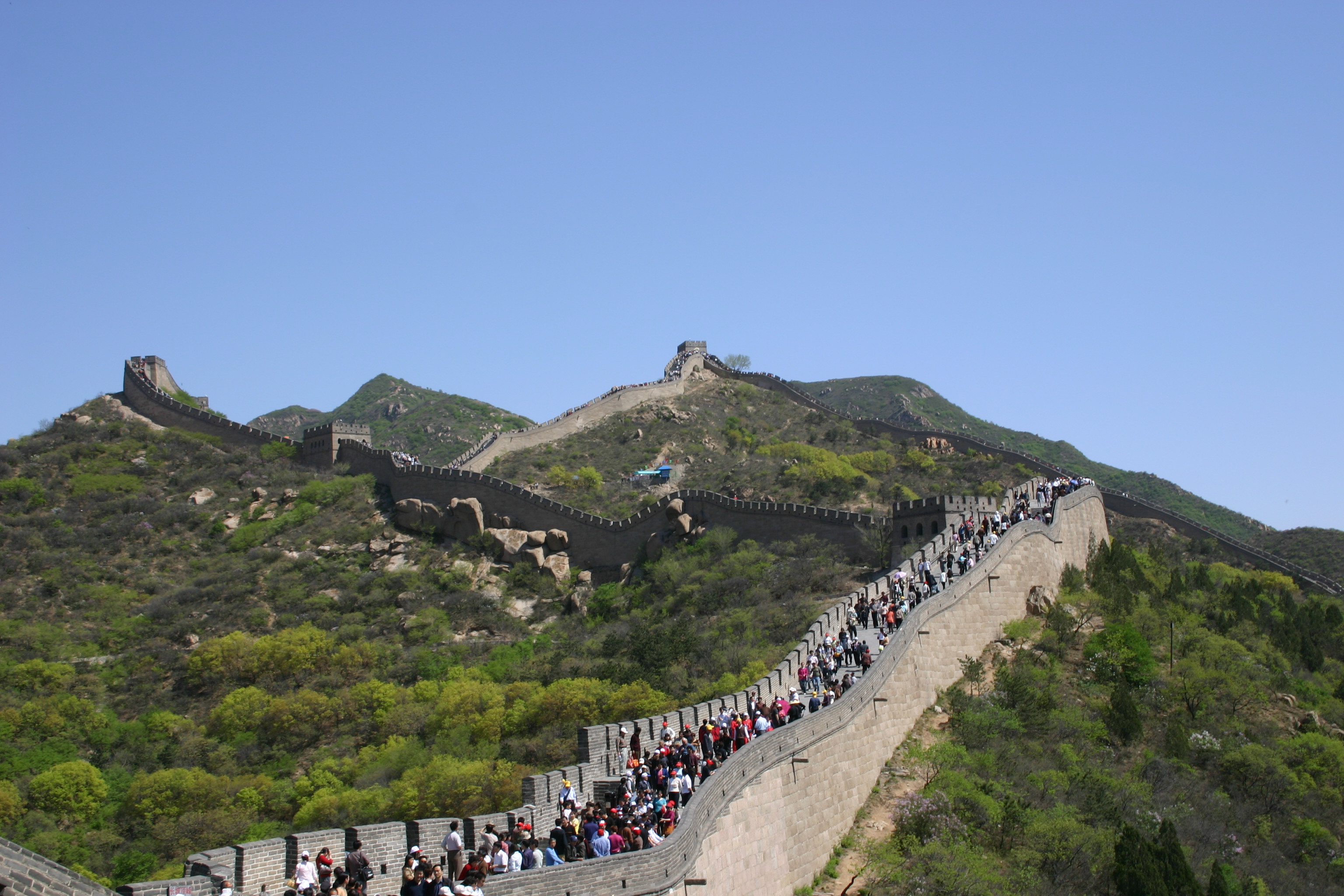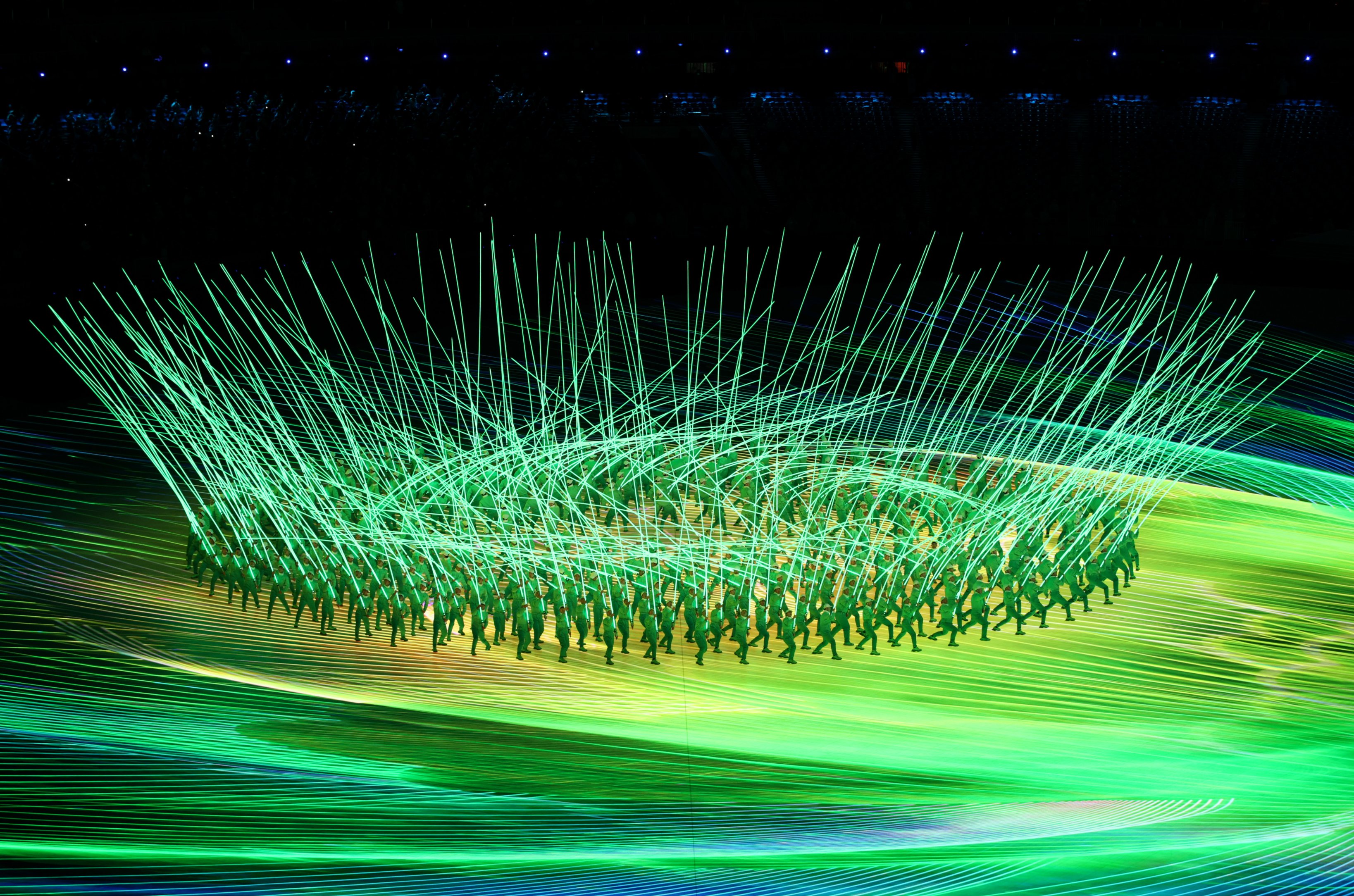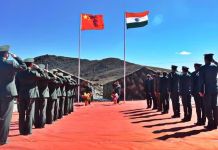The 2022 Beijing Olympic and Paralympic Winter Games have begun. China has initiated several measures to contain the spread of COVID-19 during the event. One of these is an autonomous high-speed transport arrangement that runs extremely close to an ancient UNESCO World Heritage Site.
The Fuxing Bullet Train
The Fuxing bullet train, a customized train that is capable of attaining a maximum speed of 350 km/h, was inaugurated earlier last month. This travel route, the Beijing-Zhangjiakou high-speed railway, will facilitate passenger services for the 2022 Beijing Winter Olympics. It comes with several Olympics-specific features.
This is claimed to be the first high-speed train to feature a 5G live broadcast studio in the world. The rail also has air-cleaning devices and lockers for ski gear, along with wheelchair-accessible spaces.

The vehicle supports the BeiDou Navigation Satellite System and can accommodate over 560 people. One of the carriages includes a media workspace.
Chinese state media Xinhua noted CRRC Changchun Railway Vehicles engineering research center deputy head Zhu Yan as saying: “More than 2,700 automatic inspection sensors in the train can collect data in real-time, and provide operation and maintenance suggestions after calculation.”
It further said that the vehicle will take just 50 minutes to move passengers from Beijing’s downtown district to the Olympic venues in Zhangjiakou. A regular express train takes three hours to cover this journey.
China had been working on this transport plan for a long time. In 2015, it was reported that Beijing had approved a budget of $9.22 billion to construct this train line. The construction on the railway began three years later in 2018, and the Beijing-Zhangjiakou link was completed in around a year’s time.
This is claimed to be the first route to achieve autonomous driving at such a high speed. The driverless system was projected to reduce energy usage by 7% in January.
Station Under The Great Wall
The high-speed and autonomous nature of this transportation system is not the only awe-inspiring thing about the Fuxing. In the middle of its route connecting Beijing to Zhangjiakou, the bullet train passes through the Badaling Great Wall Station.

This station is just a couple of steps away from the entrance to the most popular section of the centuries-old Great Wall of China. Moreover, since the railway line was constructed deep underground to prevent causing any structural damage to this UNESCO World Heritage Site, it has become the deepest high-speed railway station in the world.
The engineers involved in the project used an electronic detonator to accurately time the explosives down to the one-thousandth fraction of a second. This enabled the workers to maintain a vibration velocity of fewer than 0.2 centimeters per second. In other words, every explosion was calculated such that its impact would not be more than that of a single footstep in the historic monument.
The first train custom-made for the Beijing Winter Olympics set off on Thursday on the high-speed railway linking Beijing and Zhangjiakou, the co-host cities of the upcoming 2022 Winter Games. #GLOBALink pic.twitter.com/GYdzzdpwvG
— China Xinhua News (@XHNews) January 6, 2022
The station, which is located 102 meters below the ground and covers an area of more than 36,000 square meters, also includes a 12-kilometer-long tunnel system. The three-story structure is not just the deepest, but also the largest operational underground high-speed railway station in human history. It is also home to China’s second-longest escalator, which is 88 meters long and 42 meters high.
Other Measures To Contain Covid
Other than this uber-sophisticated transportation system, there are other measures put in place for the Olympic Games as well. A month before the Winter Olympics began, Beijing sealed its games “bubble”.
Around 3,000 athletes and several reporters from across the world are expected to be in China for the Games. Arrangements were made to let them remain in the bubble from the moment they land until they leave the country.
People entering the bubble are to be fully vaccinated or undergo a 21-day quarantine when they land. Inside, it was reported, everyone would be tested daily and would have to mandatorily wear face masks all the time.

Thousands of Games-related staff, cleaners, volunteers, cooks, and coach drivers will be shielded away for weeks in the specially created “closed-loop” which will not allow any direct physical access to the outside world. This closed-loop system includes transport dedicated specifically for travel between venues, with even special high-speed rail systems operating parallelly to those open to the public.
Fans are not a part of the closed-loop and organizers have been directed to make sure that they do not mingle with athletes and others inside the bubble.
This approach is in contrast with the COVID-delayed Tokyo Summer Olympics that were held between July 23 and August 8 last year. Japan had allowed some movement in and out for personnel and volunteers associated with the conduction of the Games.
Mounting Challenges
Despite special arrangements, the Beijing Olympics is facing challenges due to a completely different reason. Countries, especially western nations such as the US, the UK, and Canada have announced a diplomatic boycott. Others that have followed suit are India, Australia, Belgium, Denmark, Estonia, Kosovo, and Lithuania. They have all sent athletes, but no ministers or officials are attending.
The US revealed this partial boycott was because of China’s “human rights abuses and atrocities in Xinjiang”.
British MP Iain Duncan Smith, said: “The Chinese government commits industrial-scale human rights abuses in the Uyghur Region, Tibet and sends near-daily military incursions into Taiwan’s airspace.”
“We cannot lend any legitimacy to China’s despotic regime,” he added.
India, on the other hand, declared the boycott because one of the torchbearers was a Chinese army officer involved in the June 2020 Galwan clash, in which 20 Indian soldiers lost their lives.
Japan has said it isn’t sending ministers to the Games. However, it is sending Olympic officials.
Meanwhile, Austria, the Netherlands, New Zealand, Slovenia, and Sweden, have said that they are not sending government representatives due to COVID.
France, however, is against a boycott. President Macron opined: “I don’t think we should politicize these topics, especially if it is to take steps that are insignificant and symbolic.”
- Contact the author at: shreyya.mundhra@gmail.com
- Follow EurAsian Times on Google News




